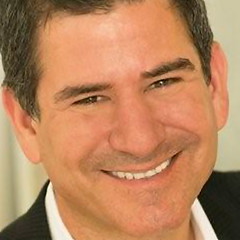
Tony Greenberg
Chairman, Ramprate
CEO, Taste Corp.
Building a Services Market for the Transhuman Era
Innovation, including transhumanist innovation, is mostly the domain of private enterprise, which operates in one of a few market models – goods or services, mass-market or custom, consumer or enterprise, etc. Of these, the services model is the one that is most broken. Of Consumerist's 32 Worst Companies in America, 22 are pure-play services companies – including 7 of the 8 finalists, and the eventual winner, Comcast.
The big question is: how do we get further along the transhumanist path when so much of it – uploading, virtual reality, cryonics, and likely even consumer-accessible versions of nanotechnology – are, or will be, delivered as a service? How do we find and reward the companies that won't accidentally unfreeze you after a power outage, lose your backup self, or jerk you out of paradise over a phony billing dispute when none of those things appear in the glossy brochure or the snazzy website? How can we tell the genuine article from marketing hype when our very selves depend on it?
The collective stakes for building an accountable and innovative market model are high. If we take a trip 60 years back, one model started off with expectations of a sub-20 unit world market and then gave us a computer in every home – and in every pocket. Another one promised us the Jetsons and instead gave us the Canyonero, fighting tooth and nail against every innovation from safety to fuel efficiency along the way.
The individual stakes may be even higher – especially if we ask someone trapped in a virtual reality built by Kafka, or AOL's cancellation department.
So what do we know about it? We know how to fix services markets – including those whose participants keep stuff chilled (data centers) and those that treasure uptime and reliability (networks, clouds, etc). We hope to fix your someday.
An idea generator turning perceptions and industries sideways since he was 17, Tony Greenberg is currently tearing down and rebuilding 2 markets: IT services and wine & spirits.
From driving mass customization in the eyewear industry, to convincing the world that it didn’t need to hug its servers at Exodus, to pioneering online video 5 years before YouTube at DEN, Tony has fearlessly challenged and changed the status quo, while thinking ahead to the endgame when the board was still being set up. He has cut out millions of misspent money and uncovered dozens of industry myths in order to make new markets and innovations flower.
Today Tony is the visionary behind RampRate, an IT services decision hub that makes multi-million dollar matches between people that need some really cold space, massive computing power and near infinite bandwidth and companies that can do so reliably, cheaply, and effectively. To the best of his knowledge, these have been used to house hot servers rather than cold bodies and corporate rather than corporeal consciousnesses, but that could change in the long run. His latest project is bringing the same decision engine to the consumer world, helping consumers start on a discovery process about their own palates, tastes, and matches with the optimal liquid refreshment.
